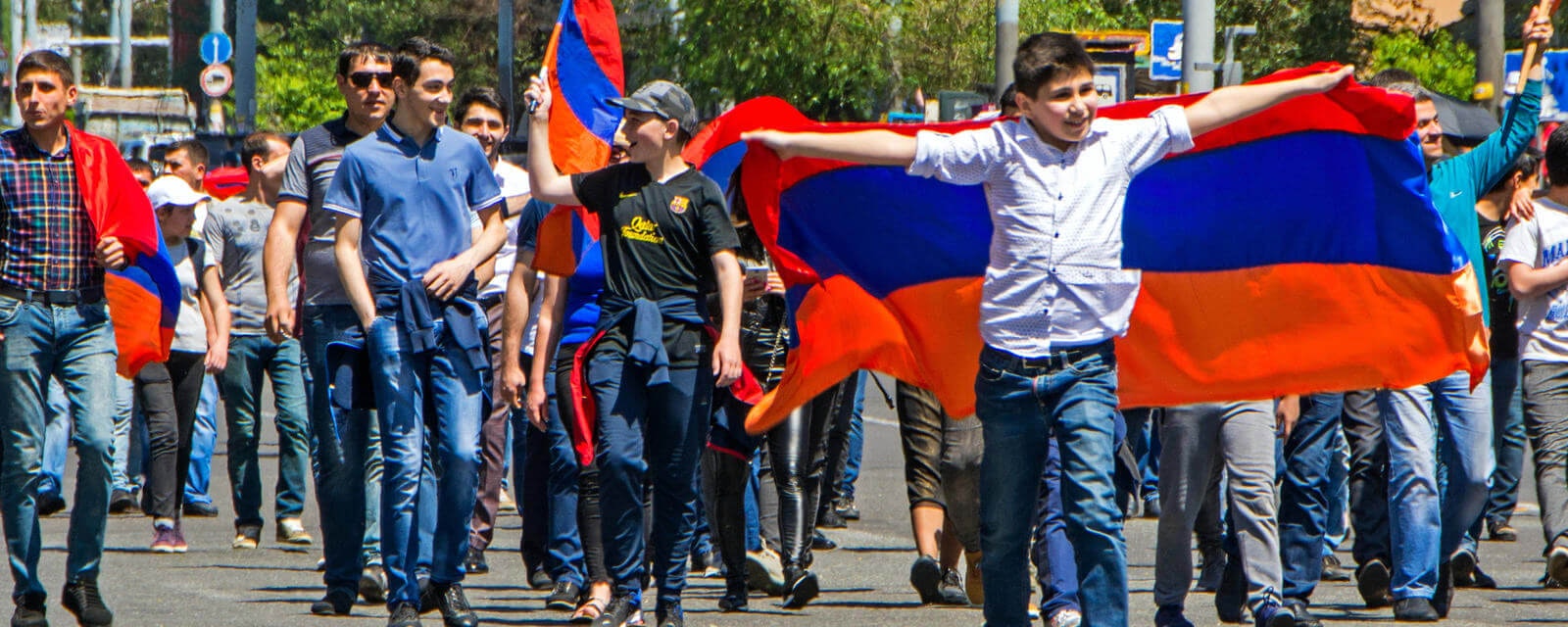The opposition leader Nikol Pashinian has increased pressure on the ruling Republican Party of Armenia (HHK) by calling a general strike ahead of his second attempt to become prime minister on 8 May. The probability of early elections in the coming months is high, and the snap polls would likely lead to a victory by the opposition. Once in power, the opposition would probably pursue political reforms, but also seek to maintain good relations with Russia.
In a special session of parliament on 1 May, Armenian opposition leader Nikol Pashinian failed to secure a simple majority in his attempt to replace acting Prime Minister Karen Karapetyan. Pashinian was the only candidate, and the ruling Republican Party of Armenia (HHK) abstained in the vote, effectively blocking his election. Another attempt to elect a prime minister will take place on 8 May. Another failed vote would lead to the dissolution of parliament and snap polls within 45 days. The HHK caretaker government would remain in charge in the meantime.
However, the opposition believes that free and fair elections can only be guaranteed if the HHK is not in control of preparing the vote. Pashinian called a general strike for today, 2 May, and the protesters have blocked key transport infrastructure and hubs. Pashinian aims to leverage the increasing public pressure in his negotiations with the ruling party leader, Varam Baghdasarian, ahead of the 8 May vote.
The decisive vote
The HHK holds an absolute majority (58 out of a total 105 mandates) in parliament, and Pashinian cannot win the vote without its support. To become prime minister, Pashinian would have to reach a temporary power-sharing agreement with the HHK with a view of holding an early general election in the coming months. However, the ruling party’s preferred strategy is to elect a new prime minister from its ranks. To calm the protests, the HHK may commit to revisit the 2015 constitutional changes (which were proposed by the ousted former president and would-be Prime Minister Serzh Sargsyan) and hold snap polls within 12 months, and even offer the opposition participation in the government.
A successful general strike in the coming days may tip the scales in favor of Pashinian (who currently has only about a 30% chance of being elected); however, for now, the HHK appears determined to hold onto power (60% probability). The ruling party’s offer to the opposition will determine the future trajectory for public protests: the HHK’s refusal to comply with any of the protesters’ demands would likely lead to escalation, while an offer of government participation and early elections in the near future would probably redirect the opposition’s efforts towards campaigning. It is also possible that the vote on 8 May will fail (10% probability), triggering an immediate general election.
Political shifts likely
In any case, snap polls appear almost inevitable in the coming months unless the government chooses to clamp down on protesters instead. For now, it remains unclear whether the protests are a revolt against the HHK as such, or only against Sargsyan. However, it is likely that the HHK would lose its parliamentary majority in the snap polls. The gains of individual opposition parties are as of yet difficult to gauge, but overall, new elections would likely result in a coalition government led by the current opposition.
A victory for the opposition would probably lead to political reforms that the protesters demand, focusing on the constitutional order and the redesign of powers of individual institutions. Economic reforms would likely be lower down on the new government’s list of priorities.
The Kremlin watches closely
Regarding foreign policy, the opposition parties would likely seek to maintain good relations with Russia. Armenia is strategically dependent on Russia in the Nagorno-Karabakh frozen conflict with Azerbaijan, and Russian companies control a significant part of Armenia’s vital infrastructure. In the last two weeks, Pashinian has walked back on some of his past statements that had challenged Moscow’s interests, and his potential partners from the Tsarukyan Alliance are, in fact, pro-Russian. Overall, barring a sharp turn in Pashinian’s foreign policy preferences, the regional geopolitical balance would likely remain unchanged.
For its part, the Kremlin is watching events in Armenia closely. Russia maintains two military bases in Armenia and should Moscow feel an anti-Russian turn in the country, the Kremlin would likely step into the situation more actively. Another possible signpost toward Moscow’s increased involvement would be if the HHK decided to hold onto power and protests would escalate or continue through the summer.





